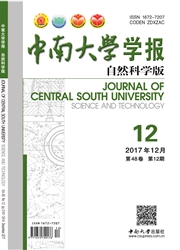

 中文摘要:
中文摘要:
为研究不同沉淀时间对污泥颗粒化过程的影响,采用序批式反应器,通过逐步缩短沉淀时间快速培养出好氧颗粒污泥。研究结果表明:在此过程中,污泥浓度逐渐降低,沉降性逐渐改善,污泥中无机质含量逐渐增加;不同沉淀时间所培养的污泥粒径不同,且污泥平均粒径与沉淀时间具有很好的负相关性;只有沉淀时间小于5min,才能形成颗粒污泥。污泥胞外聚合物(EPS)含量分析结果表明多糖在污泥颗粒化过程中起主要作用;在沉淀时间从7 min缩短至5 min的污泥颗粒化过程中,胞外聚合物中多糖的含量(以VSS计)由(140.98±19.54)mg/g增加到(310.79±50.86)mg/g;缩短沉淀时间是序批式反应器中快速培养好氧颗粒污泥的有效策略,且污泥快速好氧颗粒化要求的沉淀时间不能长于5 min。
 英文摘要:
英文摘要:
In order to explore the effect of different settling times on aerobic granulation, test was carried out in a sequencing batch reactor (SBR), where aerobic granular sludge was rapidly cultured through shortening settling time step by step. The results show that during the procedure, the mixed liquor suspended sludge decreased gradually, while, the sludge settleability was improved and the inorganic content in the sludge increased. The sludge particle size differed under different settling time, and the average particle size has a good negative correlation with the settling time. Moreover, aerobic granular sludge will form if the settling time is shorter than 5 min. The polysaccharide plays a main role in sludge granulation. During the granulation procedure in which the settling time is shortened from 7 min to 5 min, the polysaccharide in extracellular polymeric substances (EPS) increases from (140.98±19.54) mg/g to (310.79±50.86) mg/g. Shortening the settling time is an effective strategy to cultivate aerobic granular sludge in a sequencing batch reactor, and the settling time required for successful aerobic granulation will not be longer than 5 min.
 同期刊论文项目
同期刊论文项目
 同项目期刊论文
同项目期刊论文
 期刊信息
期刊信息
